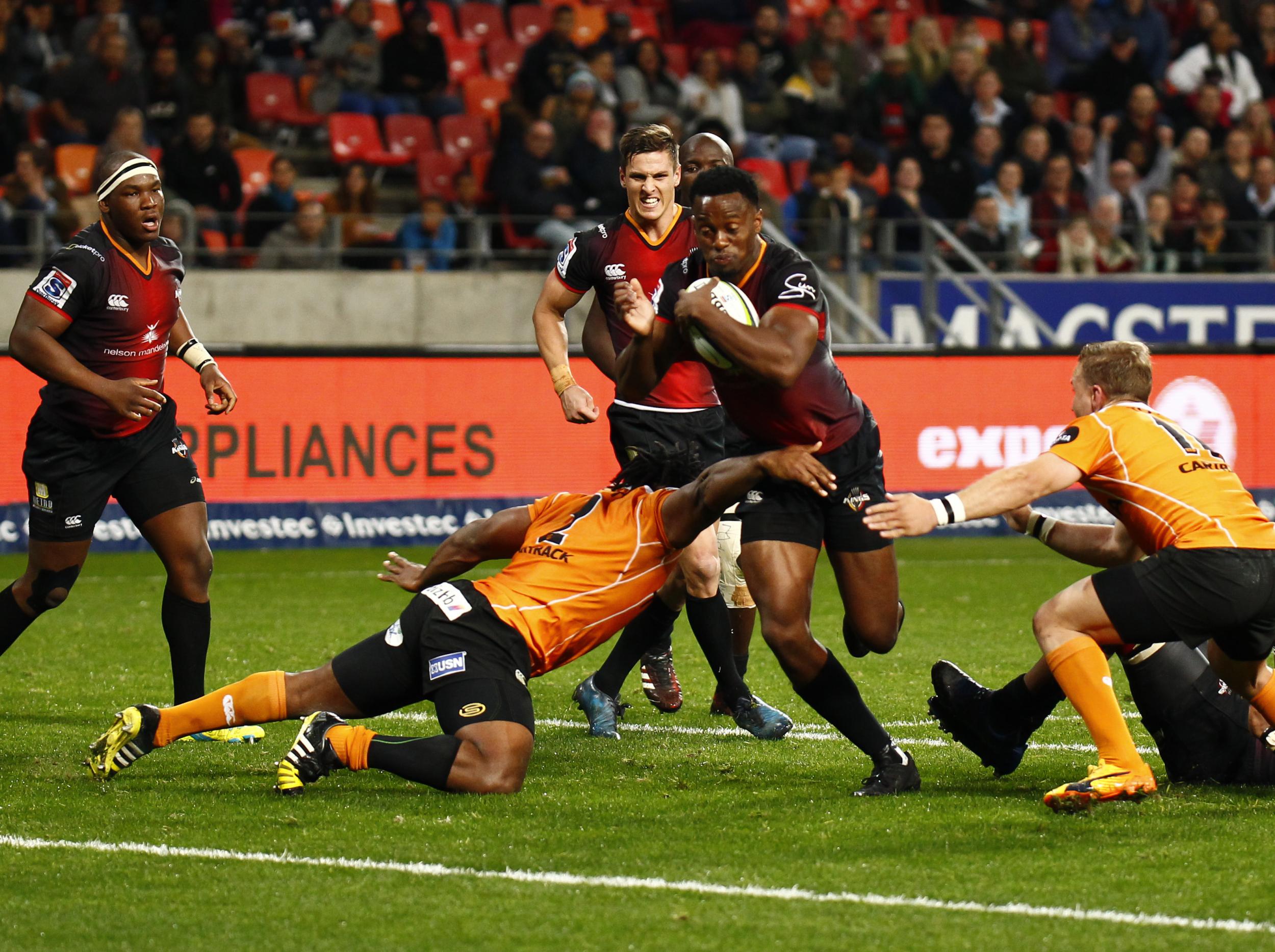Arrival of South African teams the first step to Pro14's global plans
Addition of Cheetahs and Southern Kings for 2017/18 season could herald the end of the hemisphere divide in world rugby

The South African expansion of the Pro12 to the newly formed Guinness Pro14 is likely to be just the first step in a radical shake-up of rugby worldwide, if Tuesday’s launch is anything to go by.
The prominent message from the announcement was that the inclusion of the Toyota Cheetahs and the Southern Kings for the 2017/18 campaign is merely a dip in the ocean.
"The agreement means that the championship will take place across the northern and southern hemispheres and marks the first phase of expansion as the Guinness Pro14 becomes a truly global tournament," Celtic Rugby and the South African Rugby Union said in a joint statement.
In other sports, that might mean taking games between the likes of the Scarlets, Munster, Glasgow Warriors and many others and playing them abroad, much like the Aviva Premiership has experimented with their ventures into the United States and the Premier League’s long-term interest in the concept of a ‘39th game’.
But this is not what the two aforementioned rugby unions have in mind. With the Cheetahs and Southern Kings signed up for this season, and the South African Rugby Union evidently delighted at the prospect of tapping into a league that can actually boast credible match attendances unlike Super Rugby, there is a real chance that the rest of the nations’ clubs could follow.
The arrival of the pair could be the end of the hemisphere divide and the introduction of time zone rugby. The flight from Glasgow to Port Elizabeth may take more than 16 hours at best and involve two flight changes, but a squad will arrive on the other side of the world with no jet lag and be good to go within a matter of days – five to be precise with clubs required to complete five travel-free days before matches.
How the Pro14 will work:
There has been concern among the existing Pro12 that their new opponents aren’t really up to scratch, given they finished the Super Rugby season in the bottom half of the South African conference.
But the Cheetahs are not flying the 12,000-mile round trip to make up the numbers.
“There will be a steep learning curve for our coaches and players but we’re in it to win it,” said Harold Verster, chief executive officer of the Bloemfontein outfit.
“This is a whole new ball game for rugby in South Africa and we’re proud to be trail blazers. There is a lot of excitement around the union about the opportunity and we’re already looking forward to kick off.
“We’re excited about taking the Toyota Cheetahs’ famous brand of all-out attacking rugby to Europe and bringing top European clubs to South Africa.
“The Free State is one of the great nurseries of rugby in South Africa and this is an exciting prospect for our young players – to test themselves against top players from the northern hemisphere.”
There are issues here though. If South Africa leave Super Rugby, what becomes of Argentina’s sole representative, the Jaguares, who despite helping to promote rugby in South America could well start to feel isolated away from Australia, New Zealand and Japan? And if all South African sides leave in the near future, there will not be very many happy faces at whichever Australian side is forced to shut down, with Sanzar still requiring one more team to drop out before hitting the revised Super 15 next season.
“This development is as exciting as the launch of Super Rugby itself back in 1996,” Jurie Roux, CEO of South African Rugby Union added. “It marks the start of a new adventure for rugby in South Africa with a number of exciting opportunities. It will not be without its challenges in aligning with a competition in a different part of the calendar and in very different playing conditions; but it is also a fantastic opportunity for South African rugby to widen our rugby horizons.”
If the SARU are already acknowledging that having six teams split between two separate competitions staged over different seasons is a fairly major obstacle, there must be scope to group them all in one division.
And as the Pro14 officials have already stated, this is just the first step to their plans to become a global market. With talk like that already filling the airwaves, don’t be surprised to see plenty more Springboks heading this way.
Join our commenting forum
Join thought-provoking conversations, follow other Independent readers and see their replies
Comments
Bookmark popover
Removed from bookmarks